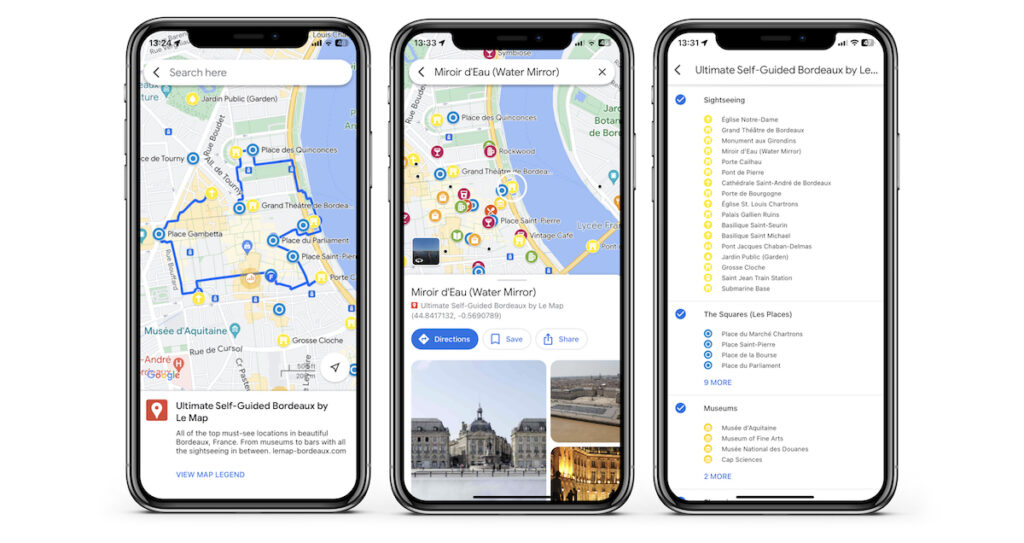Step aside, Paris! When it comes to intertwining the past, the present, and the future seamlessly, Bordeaux is your city. From its Celtic roots to its Roman occupation and its English dominion, Bordeaux has seen it all—and survived it all. Here’s your definitive guide to navigating Bordeaux’s history as smoothly as a glass of the city’s finest red.
Ancient Foundations and Roman Heritage: The Bedrock of Civilization
300 BC
It all started with the Celtic city of Burdigala. Nestled beside the Garonne River, this early settlement served not just as a trading hub, but as a cornerstone for what would become one of France’s most distinguished cities.
60 BC
The city falls to the Romans and becomes the capital of Aquitaine. More than just a political center, Bordeaux embraced Roman culture. It had amphitheaters, public baths, and even vineyards—early indicators of its future as a wine capital.
267 – 498 AD
Sacked by the Vandals not once but twice—in 267 and again in 409. But wait, there’s more; Bordeaux also faced invasions by the Visigoths in 414 and the Franks in 498. The city, however, emerged with a resolute spirit, a survivor proving its mettle time and again.
732 – 735 AD
Plundered by Abd er Rahman in 732 and looted by Charles Martel in 735. What these events show is Bordeaux’s strategic importance even in medieval times. Its geographic location made it a sought-after prize but also gave it resilience to bounce back.
1096 AD
Cathédrale Saint-André de Bordeaux is consecrated. This Romanesque-Gothic marvel added a spiritual dimension to Bordeaux’s already rich tapestry of culture.
The English Influence: More Than Just a Dowry
1152 AD
Bordeaux falls under English rule as part of Eleanor of Aquitaine’s dowry in her marriage to Henry II of England and will remain so for over 250 years.
The wine trade began to flourish during this period, linking Bordeaux indelibly with international trade routes and establishing it as the viticultural powerhouse we know today.
1441 AD
The University of Bordeaux is founded. A significant mark in academic history, this institution placed Bordeaux as a European hub for intellectual pursuits and discourse.
1453 AD
The city is annexed to France after the Battle of Castillon, next to Saint Émilion, which ended the 100 Years War.
FUNNY FACT: After the annex, the King of England received hundreds of requests from the locals to re-capture the city. Talk about break-up remorse!
1494 – 1500 AD
La Porte Cailhau was built in 1494, a captivating gate that serves as a testament to the city’s medieval might. In 1500, Tour Pey-Berland was erected—a tower with a panoramic view of the city that continues to delight visitors and locals alike.
1562 – 1629 AD
The Wars of Religion hit France, and Bordeaux was not immune. The city witnessed its share of turmoil and carnage, adding yet another complex layer to its long and multifaceted history.
18th Century
In the age of Enlightenment and colonial expansion, the city saw unparalleled growth thanks to the triangular trade routes, including the deeply troubling and ethically indefensible slave trade. This era left an architectural imprint in the form of baroque and neoclassical masterpieces like La Place de la Bourse and Le Grand Théâtre.
FUNNY FACT: Bordeaux was such a trendsetter in urban planning that it served as a model for the modernisation of Paris under Emperor Napoléon III. Talk about setting the standard!
Modern Bordeaux: A Mosaic of War, Innovation, and Recognition
1870, 1914, 1940
During the Franco-Prussian War, World War I, and World War II, the French government relocated to Bordeaux. These migrations underscored Bordeaux’s enduring strategic and political relevance in French history.
2003
Bordeaux wasn’t content to rest on its historical laurels. The Bordeaux Tramway was inaugurated in 2003, modernizing the city’s public transport and making it a contemporary urban center.
2015
The accolades keep coming! Bordeaux was voted “Best European Destination 2015,” a deserved nod to a city that has it all—history, culture, and an unbeatable lifestyle.
Bordeaux Today: The Sixth Star of France
Today
Bordeaux forms the 6th largest metropolitan area in France with a population of more than 1,155,000. The city remains a dynamic blend of the past and the present, maintaining its status as a cultural, historical, and—let’s not forget—oenological heavyweight.
From its ancient roots to its promising future, Bordeaux stands as a beacon of French elegance and a testament to the enduring power of transformation. Cheers to Bordeaux—may its story continue to be as enticing as its world-renowned wines!


